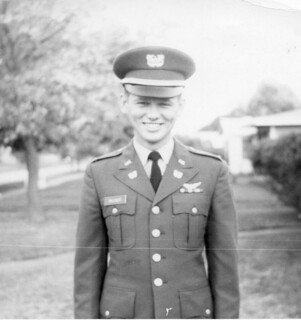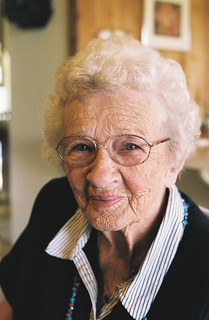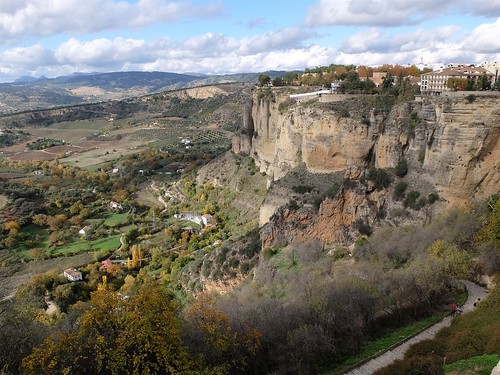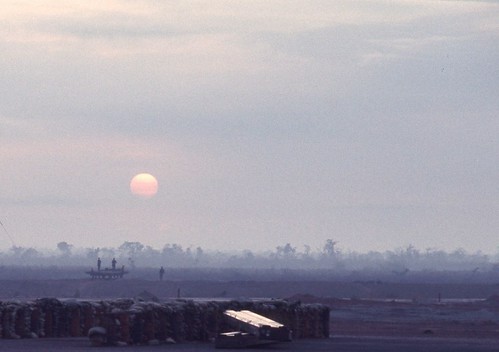November 7, 1969, 11 a.m. I was getting close. After 11 months and three weeks, I had only eight more days left in Viet Nam. Helicopters were loud and tempting targets; flying a Huey meant being regularly shot at. I had been in a few scares, seen a lot of the country, the usual ups and downs of a year in a war zone. I was promoted to CW2 the month before and now with over two years service was finally making some real money, almost $500 a month plus flight and combat pay.
In most aviation units, including ours, the tradition was that if you were still alive near the end of your year-long tour of duty, you could have the last week off. So, in another day or two I could coast, stay drunk, wouldn't have to fly, sleep all day, say good-bye to all this crap, go home and eat a real hamburger and some Twinkies and drink a real milkshake.
The Ops Sergeant came by and told me I didn't pull any missions that day. Good. But I'd be the A/C (aircraft commander) on call for night missions, should any come up. Bad. That meant I couldn't drink much. But I was another day closer.
Dull day. Hot. Beginning the boring dry season, same high humidity, high temperature day in, day out, just like August growing up in Galveston and Houston. Listen to some Big Brother, Country Joe, throw in a little jazz. Go to bed early; one, maybe two days left of fretting, then I coast.
After midnight, I get a wake up. I have to fly to Tan Son Nhut, the big base in Saigon, pick up a guy and some equipment, take him to Lai Khe, drop the stuff off, then bring him back to Saigon. Not a big deal, just an oddball little delivery, yet, going up at night, to the Iron Triangle of all places. Shit.
We get the crew together, the ship's already preflighted, crank it. We wake up the tower operator and tell him we're going, if we ain't back in 90 minutes, send help and lots of it. Cleared for take off. Keep it low, a foot or two off the runway as we accelerate to VNE 120 knots, pull the cyclic back hard for a quick climb up to 1500', pull more power to get even higher, be thankful it's one of the new H models. Head for Saigon.
Godawful night flying. Call Bear Cat Arty, the artillery radio net, to find out which way they're shooting. They have fire missions all around the compass, big artillery rounds going every which way. Fly over some, under and around the others, zig zag towards Saigon.
Five miles out, drop down to 500', kill the lights, look out for the usual odd tracer trail from the Saigon suburbs, get clearance to land. A Spec 5 signal technician is waiting with a couple of boxes. We get him on board, take off, head north for Lai Khe, the headquarters of the 1st Infantry Division.
Lai Khe Arty is busy. It takes us an extra 10 minutes to fly around to avoid the artillery, we finally make it in, park our Huey right in front of the dinky little control tower alongside the runway, pitch down and roll the throttle back to idle. The engine stays running, the rotor beating rhythmically overhead. My crew chief helps the Spec 5 unload the boxes from our ship and into a jeep. Be back in 10, the Spec 5 says, hurrying, anxiety in his voice even as he shouts to be heard over the turbine whine. He's obviously more nervous than we are about being here, away from the safety of his home on a big air base.
We sit there, idling, listening to two or three radio channels. They're all fairly quiet except for the traffic on Arty, as they call out updates to their fire missions. It's a pretty, starry night, all things considered.
Long pauses. We hear a distant boom, a boom unlike a friendly howitzer, then the voice of the arty RTO, with a shade more energy in his voice than before. "Be advised Lai Khe has incoming! Incoming!"
Shit. Mortar rounds, rockets, who knows, I can see the stuff hitting far away but moving closer, the bad guys are walking in their shots from the outer berm, looks like they're adjusting the range, aiming for the runway, the tower -- and me. I quickly turn my head and see the Spec 5 jumping out of the returning jeep and running towards the ship. I get on the intercom and tell the crew chief, "Get his ass in now! We are outta here!"
Even before he jumps in I am rolling the throttle up and getting light on the skids. He's in, strapping down, and I pull as much collective as I can grab, push the cyclic forward, and the beautiful new H model with the shiny Lycoming engine vaults into the air as we escape into the safety of the night sky. I make my way out of Lai Khe at a sharp angle from the incoming so we don't fly into it. We get up and away, gain some altitude, turn to Saigon.
It's pushing 3 a.m. by the time we get back to Long Thanh North, gas it up, shut it down, fill out the log, put it to bed and head back to our hooches.
November 8, 1969, 9 a.m. I am catching up on my sleep, all the other crews are out flying, the hooch area is deserted. I get another wake up from the Ops Sergeant. "Mr Wegner, Mr Wegner! Get up, sir, you're leaving! Leaving Viet Nam!"
Yea, right, I think. But he wasn't kidding, I got a drop of a week, going home early, have to leave now, right now. I race around my room, hurriedly throwing stuff in bags, trying not to forget anything. I scooped up my .45 and M-16, chicken plate, classified signals book, tossed it to the sergeant with a plea to check it all back in for me. Luggage in hand, ready to go, I find out all of our ships are gone, I have to hitch a ride on a Huey from another unit that luckily happens to be headed my way.
I'm in a quiet rage. The fucking bastards made me fly on my last day. My last day! I could have been killed, a fucking night mission. No week of taking it easy, no good-bye party, no farewells, nothing. All the guys I had been flying with, living with, for a year, will come back from their missions, walk in, notice my stuff is gone. In another year they'll forget my name, I will forget theirs.
For almost a day I hurry up and wait at some transit barracks with a bunch of people I've never seen before. A few of us are waiting for a flight out, most are just arrived in country. Very few pilots, mostly Infantry lieutenants and Supply officers. For once I am proud of ratty, faded fatigues.
Finally it's time. Get on the bus, head out to the runway, climb the stairway to board the jet. A line of GIs ahead of me, a line behind, I stop at the top of the stairs, turn around and look. I pause, trying to scan it all in, hoping to imprint the scene on my memory forever. Viet Nam. It's over. I made it. I am going home.
The airliner is loaded, every seat taken, the doors are shut, the air conditioning vents are struggling to clear out the tropical heat and moisture, we taxi to the end of the runway, throttles to the wall, we're going, going, going, faster, faster, rotate for take off, wheels up, we head out to sea, to the east, ever closer and closer back to The World.






